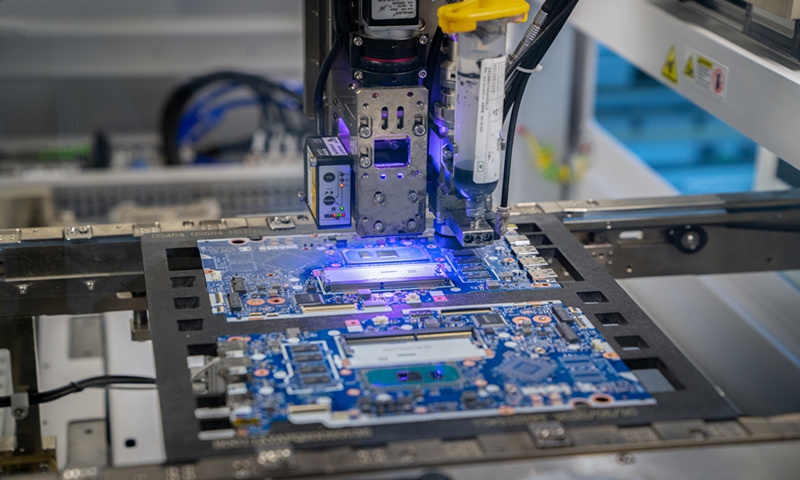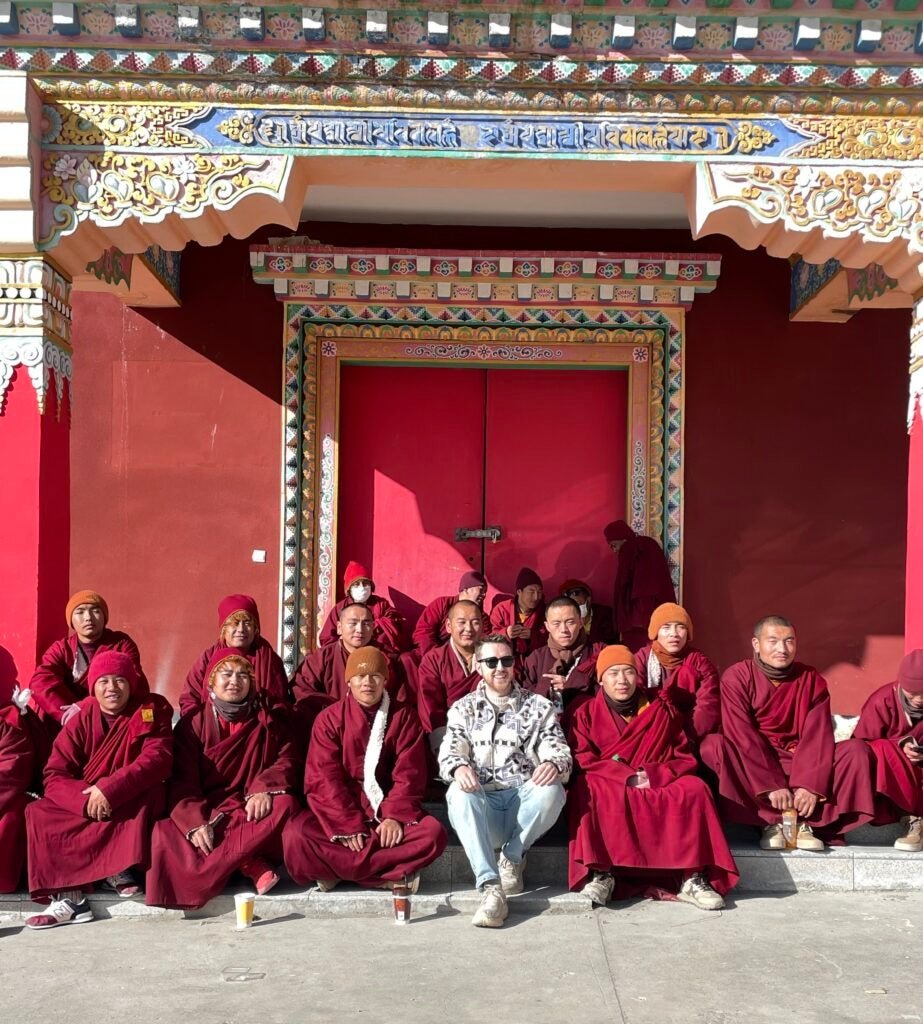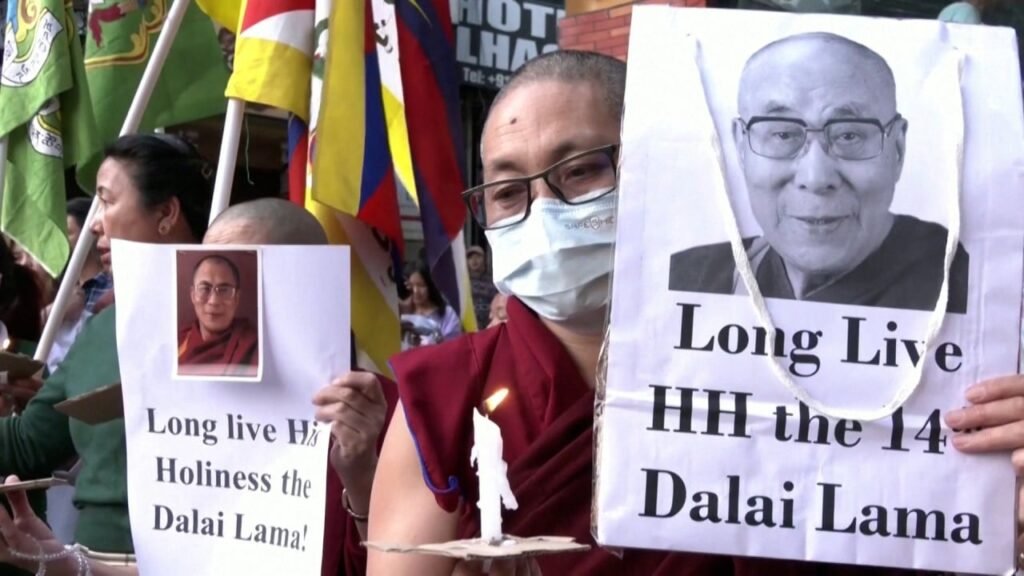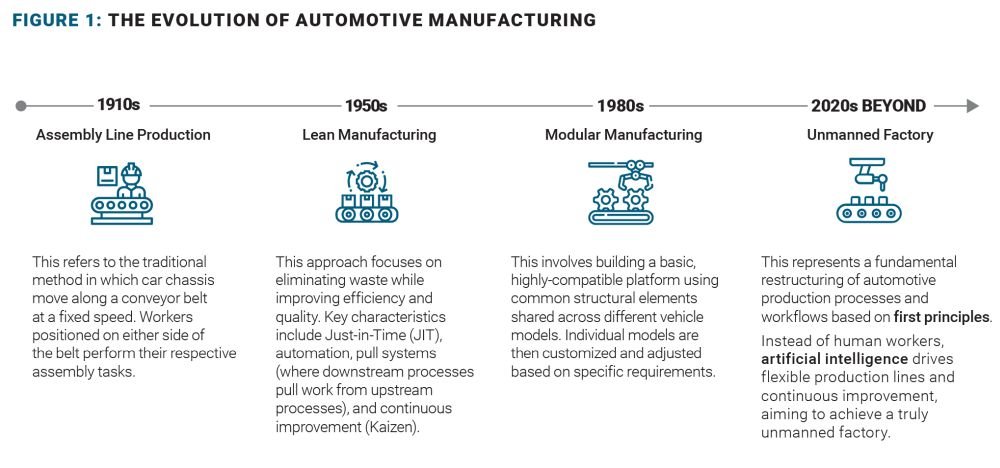
A chip manufacture machine Photo: VCG
US Commerce Secretary Howard Lutnick’s latest accusations of Chinese technology copying as he calls for stricter export controls are completely unfounded and reflect Washington’s intention to maintain its monopoly in semiconductors and high-tech sectors, a Chinese expert said Friday, noting that such US restrictive measures against China are only accelerating China’s breakthroughs in achieving semiconductor independence.
During a House Appropriations subcommittee hearing on Thursday, Lutnick called for stepped-up enforcement of US export controls, a move he claimed would prevent China from stealing critical American technologies that could support China’s development in areas like artificial intelligence and aviation, Bloomberg reported.
“They are trying to copy our technology,” Lutnick said Thursday during the hearing on the Commerce Department’s budget. “In the race for AI supremacy, they are behind us, but they are working with the central government to catch up, to beat us so that they will have intellectual superiority over us.”
Lutnick argued for more funding for the department’s BIS, which oversees export control efforts.
He said the additional resources would help expand the number of agents who visit warehouses and exporters to ensure compliance with US limits on sales to China and other American adversaries. Lutnick said he wants to post more than two BIS agents inside China to boost enforcement efforts, according to the Bloomberg report.
Chinese experts dismissed Lutnick’s accusations as politically motivated which serves to lobby for more funding.
“The claim that China is copying technology is groundless and serves only to justify America’s tech blockade. This is not about security but about maintaining the US monopoly in chips and related high-tech fields,” Ma Jihua, a veteran telecom industry expert, told the Global Times on Friday.
Ma said that China’s domestic chip industry is making rapid breakthroughs, particularly in high-end manufacturing.
On the contrary, the US blockade has caused companies like NVIDIA to suffer huge revenue losses due to being cut off from the Chinese market, Ma said. Meanwhile, China has gained a critical window to scale up production, strengthen R&D, and establish a self-sustaining industrial ecosystem.
Nvidia CEO Jensen Huang said in May that China’s artificial intelligence market will likely reach about $50 billion in the next two to three years, and that missing out on it would be a “tremendous loss,” CNBC reported.
Christophe Fouquet, the chief executive of the Dutch technology company ASML, expressed his concerns that certain government polices risk upending decades-old supply chains, slowing development of artificial intelligence and other technologies and motivating China to expand its homegrown semiconductor industry, which could ultimately undercut ASML’s dominance and harm Western interests, the New York Times reported on Thursday.
Export bans can be counterproductive, he said, warning against using national security to justify protectionist policies. Rather than a focus solely on holding back an economic rival like China, attention needs to be on innovating, he said, according to the report.
Chinese authorities have repeatedly slammed the US for its discriminatory restrictive measures against China.
The US has seriously undermined the consensus reached during the China-US economic and trade talks in Geneva by successively introducing multiple discriminatory restrictive measures against China, China’s Ministry of Commerce said Monday.
These measures included issuing guidance on AI chip export controls, halting sales of chip design software to China, and announcing the revocation of visas for Chinese students. These actions gravely harmed China’s legitimate rights and interests according to a spokesperson for the ministry.
Global Times







